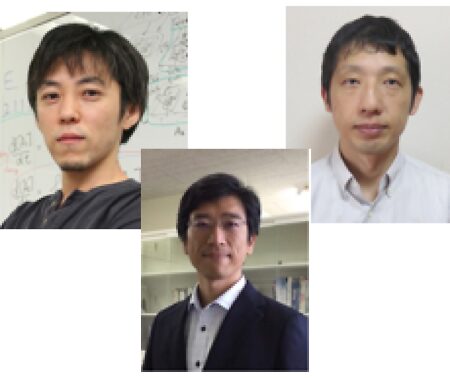Three seminars by Profs. Funahashi, Abe and Asai

Date
Location
Description
Integrated Open Systems Unit would like to invite you to the following three seminars.
Seminar 1
"Segmenting Four-dimensional Fluorescence Microscopic Image using Convolutional Neural Network" by Prof. Akira Funahashi, Keio University
Abstract:
To segment microscopic images is one of the important tasks for quantitative analysis of biological phenomena. The problem of segmentation in biological imaging is that the parameter value of each image processing should be determined beforehand, and the parameter value depends on the feature of each image and imaging conditions. Recently, many studies have been reported which applied Convolutional Neural Network (CNN) for segmenting two-dimensional microscopic image to solve this problem. However, because it is common to acquire multi dimensional microscopic images along with the development of imaging technology, proposals of segmenting multi dimensional microscopic images are desired. In this study, we propose the segmentation algorithm for four-dimensional fluorescence microscopic images using CNN.
We implemented an algorithm to segment nuclei from four-dimensional fluorescence microscopic images of mouse embryos using CNN. In dataset creation, we cropped one time point in the three-dimensional fluorescence microscopic image of 18 different cell stages of the mouse embryo, and the Ground Truth was created manually. We also interpolated the microscopic image and the Ground Truth in order to match the actual scale. In the implementation of the learning model, segmentation algorithm was implemented based on CNN.
With the current implementation, the voxel accuracy of segmentation achieved 99.3% by 6-fold cross validation. Also, IoU which is a criterion of segmentation achieved 0.773, which outperformed existing implementations.
As a future prospect, we will acquire quantitative criteria from four dimensional fluorescence microscopic images of early-stage embryos by a further improved segmentation algorithm, and select the most effective criteria to evaluate the quality of embryos.
Seminar 2
"Simulation and parameter estimation for adaptive control of biological dynamics" by Prof. Takeshi Abe, Yamaguchi University
Abstract:
Mathematical modeling based on differential equations helps researchers study dynamics seen in a wide range of biological fields.
For example, using a system of ordinary differential equations (ODE) is a standard manner to model time evolution of chemical reactions in systems biology.
Conventional simulation of such a system is done by finding numerical solution of the corresponding Cauchy problem.
On the other hand, there is an inverse problem estimating the values of parameters or initial values in the equations to be fitted for given experimental data.
It is reduced into a problem of optimal control by taking an appropriate "goodness of fit" or performance index.
Here we will discuss about a formal treatment combining analytical solution of a system of ODE with optimal control, and extend it to bridge from numerical measurement to I/O signals in order to control experimental devices in real time.
Seminar 3
"Attempt to establish platform for multilevel systems medicine" by Prof. Yoshiyuki Asai, Yamaguchi University
Abstract:
The importance of systems biological approaches has been well recognized recently in various biological and physiological fields including medicine, to develop new drugs, new medical treatments, and so on. Physiologically plausible mathematical models developed based on precisely measured physiological data are used as powerful tools to bridge data to the better understanding of the dynamical physiological functions and pathologic conditions. Recently, not only such model-based approaches, the data-driven approaches using machine learning technologies are also strikingly progressing. These two ways must be recruited to establish the individuated systems medicine.
In the seminar, I would like to introduce several recent efforts in that direction promoted in Graduate school of medicine, Yamaguchi University, and to discuss the ideas how to integrate data-driven and model-driven approaches towards individuated systems medicine.
Key words: systems medicine, integrative physiology, machine learning
Attachments
Intra-Group Category
Subscribe to the OIST Calendar: Right-click to download, then open in your calendar application.



